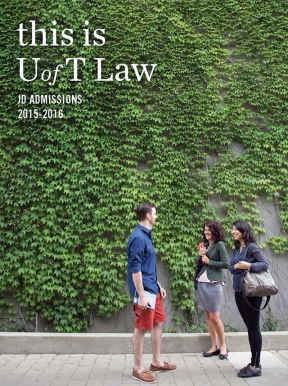BOOKS
Mourir au 21e siècle : entre corporalités et technologies [trans. Dying in the 21st Century: Corporealities and Technologies], Montréal, Yvon Blais, 2021 (edited volume with Audrey Deveault).
- Book reviews: Jean-Frédéric Ménard, (2021) 15:1 Revue de droit et santé de McGill 1; Benjamin Mathiot, (2021) 45:1-2 Anthropologie et Sociétés 344; Simon Legault, Revue canadienne de bioéthique [forthcoming]; Martin Vachon, Revue de droit de l’Université de Sherbrooke [forthcoming]; Mouloud Boukala, Frontières [forthcoming].
La mort : questions de transmission. Tome 1 – Perspectives culturelles [trans. Death: Transmission Questions. Volume 1 – Cultural Perspectives], Saint-Joseph-du-Lac, M éditeur, 2021 (edited volume with Audrey Deveault).
La mort : questions de transmission. Tome 2 – Perspectives sociales [trans. Death: Transmission Questions. Volume 2 – Social Perspectives], Saint-Joseph-du-Lac, M éditeur, 2021 (edited volume with Audrey Deveault).
Manuel de grammaire non sexiste et inclusive [trans. Non-Sexist and Inclusive Grammar Guide], Paris, Syllepse, 2018 [French edition of the Grammaire non sexiste de la langue française] (with Suzanne Zaccour).
Grammaire non sexiste de la langue française [trans. Non-Sexist Grammar of the French Language], Saint-Joseph-du-Lac, M éditeur, 2017 (with Suzanne Zaccour).
- Book reviews: Éliane Boucher, (2021) 33:2 Canadian Journal of Women and the Law 265; Héloïse Michaud, (2019) 38:1 Politique et Sociétés 185.
Dictionnaire critique du sexisme linguistique [trans. Critical Dictionary of Linguistic Sexism], Montréal, Somme Toute, 2017 (edited volume with Suzanne Zaccour).
- Upon publication, that book held second position in Le Devoir’s top sales report for Québec non-fiction books.
- Chosen by Les libraires as one of the best 100 nooks published in Québec in 2017.
- Book review: Marilou Tanguay, (2019) 32:1 Recherches féministes 248.
PEER-REVIEWED ARTICLES
Remuer ciel et terre : L’autonomie corporelle après la mort au regard de l’exhumation [trans. Leave No Stone Unturned: Bodily Autonomy After Death and Disinterment], [2022] (2021) 66 McGill Law Journal 675.
- Arguing that judges, in order to discover the deceased’s presumptive wishes in the absence of clearly expressed wishes regarding the disposal of their body, use a narrative approach or a relational approach to human nature. Theorizing and critically assessing the case law on disinterment since the enactment of the Civil Code of Québec in 1994.
L’aide financière aux victimes d’infractions criminelles : quelles victimes de violences sexuelles ou conjugales sont admissibles au nouveau régime québécois? [trans. Financial Assistance for Victims of Criminal Offences: Which Victims of Sexual or Domestic Violence Are Eligible for the New Québec Regime?], [2022] (2020) 79 Revue du Barreau 145.
- Analyzing the new elements influencing the eligibility of a victim of sexual or intimate partner violence for financial assistance offered by the State of Québec, more specifically: (1) the new definition of criminal offence, (2) the introduction of the concept of sexual violence, (3) the obligations of cooperation imposed on victims, (4) gross fault and (5) the time limit for filing a claim.
La culture du viol et langage juridique : soigner ses mots pour combattre les violences sexuelles [trans. Rape Culture and Legal Discourses: Taking Care of Our Words to Combat Sexual Violence], (2021) 33:2 Canadian Journal of Women and the Law 175 (with Suzanne Zaccour).
- Identifying and criticizing discursive practices that perpetuate rape culture by trivializing sexual violence and excusing perpetrators.
Can Sentience Recognition Protect Animals? Lessons from Québec’s Animal Law Reform, (2021) 27:1 Animal Law Review 57.
- Arguing (1) that legal sentience recognition’s fate is to become more than symbolic and to receive normative force, (2) that considering a legal duty to respect animal sentience as an instrument to prevent their killing and exploitation is a mistake, and (3) that the legal protection of “biological needs” might bring hope where sentience does not by covering some of sentience’s blind spots.
Le droit de vie et de mort sur l’animal : quelle évolution depuis la reconnaissance des animaux comme êtres sensibles? [trans. The Right of Life and Death over Animals: Any Progress since the Recognition of Animals as Sentient Beings?], (2021) 55:1 Revue juridique Thémis de l’Université de Montréal 137.
- Arguing that the Québec animal law reform limits the right of life and death that human beings exercise over animals.
La rédaction inclusive en droit : pourquoi les objections ratent-elles la cible? [trans. Inclusive Legal Writing: Why Do Objections Miss the Target?], (2021) 99:1 Canadian Bar Review 113.
- Debunking eight objections to inclusive writing in law: (1) grammatical gender has nothing to do with the gender of persons; (2) grammar rules have nothing to do with patriarchy; (3) inclusive writing is a superficial project; (4) feminine words weigh down the text; (5) judges do not use inclusive writing; (6) feminization is a mistake in French; (7) gender-neutral writing is too vague for the law; (8) inclusive writing reinforces the binarity and sexism of the French language.
L’indemnisation des victimes d’actes criminels au Québec : la loi exclut-elle les victimes de violences sexuelles ou conjugales? [trans. Crime Victims Compensation in Québec: Does the Law Exclude Victims of Sexual or Domestic Violence?], (2020) 61:3 Cahiers de droit 1097.
- Providing a critical assessment of the Crime Victims Compensation Act of Québec from the perspective of sexual assault and domestic violence victims.
A Dynamic Judicial Approach to Diachronic Legislative Integrity, (2020) 33:2 Canadian Journal of Law and Jurisprudence 481.
- Arguing that theories of statutory interpretation should account for the fact that legislative bodies are in a dynamic process of building coherence and consistency in the law, but that the law might not be a coherent, consistent and complete whole yet. Consequently, courts ought to give more importance to legal norms that a legislative body is most committed to and less to norms this body has neglected or abandoned although they might still be visible in legal texts.
Les amoureux sur les bancs publics: Le traitement juridique du polyamour en droit québécois [trans. Lovers on Public Benches: The Legal Treatment of Polyamory under Québec Law], (2019) 32:1 Canadian Journal of Family Law 1.
- Defining polyamory, monoamory, and related concepts. Arguing that four approaches are used in Québec to orient people toward monogamous relationships and away from polyamorous relationships: (1) limiting to two the number of parents per child, (2) facilitating spousal care, (3) protecting spouses against economic vulnerability, and (4) prohibiting certain polyamorous arrangements (criminalization of polygamy).
Quel genre de droit? Autopsie du sexisme dans la langue juridique [trans. Autopsy of Sexism in the Legal Language], [2019] (2017) 47:2 Revue de droit de l’Université Sherbrooke 225 (with Suzanne Zaccour).
- Tracking sexism in the language of the law, laying down a nomenclature of jurilinguistic sexisms (lexical, grammatical, terminological) as well as developing two new notions: the linguistic glass ceiling and ostentatious feminines.
- Cited by the Supreme Court of Canada in R. v. Friesen, 2020 SCC 9.
Le calcul des aliments du parent de fait : de l’approche synchronique à l’approche étapiste [trans. Calculating the support paid by a de facto parent: moving from a synchronic to a layered approach], (2019) 60:1 Cahiers de droit 251.
- Arguing for the adoption of a layered approach to child support, under which the support obligation of a de facto parent is subsidiary to the obligation of the civil parent.
« Why couldn’t you just keep your knees together? » L’obligation déontologique des juges face aux victimes d’agression sexuelle [trans. The Ethical Obligations of Judges in Sexual Violence Cases], [2019] (2017) 63:1 McGill Law Journal 155.
- Arguing that judges commit a breach of judicial ethics when they make a remark or a statement that (1) is likely to maintain the myth of the good victim of sexual violence, (2) participates in one of the four related stereotypes condemned in law and (3) is not justified by its relevance and necessity for legal reasoning.
Les dénonciations publiques d’agressions sexuelles : du mauvais usage de la présomption d’innocence [trans. Public Denunciation of Sexual Assault: Misunderstanding the Presumption of Innocence], (2017) 29:2 Canadian Journal of Women and the Law 401.
- Arguing that using the notion of presumption of innocence to prevent victims from denunciating cases of sexual assault is an inappropriate use of the notion.
PEER-REVIEWED CASE COMMENT
Euthanasie, abattage et mise à mort d’animaux: comment interpréter la Loi sur le bien-être et la sécurité de l’animal ? – Commentaire sur Road to Home Rescue Support c Ville de Montréal [trans. Euthanasia, slaughter and killing of animals: How to interpret the Animal Welfare and Safety Act? – Comments on Road to Home Rescue Support c Ville de Montréal], 50 Revue générale de droit 319 (with Romane Bonenfant).
- Providing a critical assessment of Road to Home Rescue Support c Ville de Montréal, 2019 QCCA 2187.
CHAPTER
Pour quelques harfangs de neige. Le Québec au cœur d’un dialogue transsystémique sur les droits des animaux [trans. For a Few Snowy Owls: Québec at the Heart of a Transsystemic Dialogue on Animal Rights], in Aloïse Quesne (ed.), Quel(s) droit(s) pour les animaux?, coll. Générations futures, Paix et Environnement, Paris, Mare et Martin [to be published].
- Offering an introduction to Québec animal law for a European readership and exposing how this law is at the heart of a transsystemic dialogue, particularly regarding the notions of sentience and biological needs.
ARTICLES
Coronavirus : la vaccination des enfants contre la COVID-19 [trans. Coronavirus: vaccination of children against COVID-19], (2021) November Repères 3383.
- Providing an overview of recent developments in family law concerning the vaccination of children against the coronavirus.
Comment calculer les dommages pour la perte d’un animal? [trans. How to calculate damages for the loss of an animal?], (2021) January Repères 3203.
- Making sense of the recent jurisprudential debate on whether the legislative recognition of animals as sentient beings impacts the calculation of damages due for the loss of an animal.
Violence conjugale et droit de la famille : la méconnue ordonnance de protection [trans. Domestic Violence and Family Law: The Overlooked Protection Order], (2020) October Repères 3167.
- Analyzing recent legislative and judicial developments calling on practitioners and judges to better protect domestic violence victims by seeking and issuing protection orders.
Coronavirus : développements récents en droit de la famille durant la pandémie de la COVID-19 (14 avril au 1er juin 2020) [trans. Coronavirus: Recent Developments in Family Law During the COVID-19 Pandemic (April 14 to June 1st, 2020)], (2020) June Repères.
- Providing a critical overview of family law developments, discussing among others return to school cases.
Coronavirus : développements récents en droit de la famille concernant la garde et l’accès durant la pandémie de la COVID-19 (13 mars au 13 avril 2020) [trans. Coronavirus: Recent Developments in Family Law Regarding Custody and Access During the COVID-19 Pandemic (March 13 to April 13, 2020)], (2020) April Repères 2983.
- Providing a critical overview of family law developments, discussing among others custody and access cases.
Commentaire sur la décision Roy c. Centre intégré universitaire de santé et de services sociaux de l’Est-de-l'Île-de-Montréal – Responsabilité civile pour entrave à la volonté de don d’organes et de tissus : l’autonomie corporelle après la mort [trans. Commentary on Roy c. Centre intégré universitaire de santé et de services sociaux de l’Est-de-l'Île-de-Montréal – Civil liability for obstructing the wish to donate organs and tissues : Bodily autonomy after death], (2020) March Repères 2924.
- Providing a critical assessment of Roy c. Centre intégré universitaire de santé et de services sociaux de l’Est-de-l'Île-de-Montréal, 2019 QCCQ 6257, a rare case of civil liability in the context of posthumous organ donation.
Dialogue dissident : la désobéissance a-t-elle sa place sous une autorité linguistique inclusive? [trans. Dissenting dialogue: does disobedience have its place under an inclusive linguistic authority?], (2018) 53 Cahiers de l’éducation permanente 35 (with Suzanne Zaccour).
- Arguing that disobedience to linguistic authorities is not only justified when confronted to sexist institutions but also to inclusive ones in some circumstances.
Parler féministe [trans. Speak Feminist], (2018) 1 “Lumières” Revue L’Esprit Libre 15 (with Suzanne Zaccour).
- Arguing in favour of “ostentatious” feminine words, that is, feminine words audibly distinct from masculine words.
CONTRIBUTIONS TO PUBLIC CONSULTATIONS
Quatre amendements pour freiner la violence familiale : Mémoire sur le Projet de loi no 2, Loi portant sur la réforme du droit de la famille en matière de filiation et modifiant le Code civil en matière de droits de la personnalité et d’état civil, [trans. Four Amendments to Curb Family Violence: Bill 2, An Act respecting family law reform with regard to filiation and amending the Civil Code in relation to personality rights and civil status], presented to the Committee on Institutions, National Assembly of Québec, December 1, 2021.
Mémoire sur le Projet de loi no 84, Loi visant à aider les personnes victimes d’infractions criminelles et à favoriser leur rétablissement, [trans. Brief on Bill 84, An Act to assist persons who are victims of criminal offences and to facilitate their recovery], presented to the Committee on Institutions, National Assembly of Québec, January 20, 2021.
- Invited by the government to orally present this brief during the special consultations of the Committee on Institutions, online.
Mémoire sur le Projet de loi no 64, Loi modernisant des dispositions législatives en matière de protection des renseignements personnels, [trans. Brief on Bill 64, An Act to modernize legislative provisions as regards the protection of personal information], presented to the Committee on Institutions, National Assembly of Québec, October 25, 2020 (with Suzanne Zaccour for Québec contre les violences sexuelles).
Comments on the Proposed Regulatory Provisions under the Security from Trespass and Protecting Food Safety Act, presented to the Ministry of Agriculture, Food and Rural Affairs of Ontario, October 15, 2020 (with the Animal Justice Student Association of the University of Toronto).
Mémoire sur le traitement juridique des personnes polyamoureuses et de leurs enfants [trans. Brief on the Legal Treatment of Polyamorists and their Children], Ministère de la Justice du Québec, June 28, 2019.
Mémoire sur la situation juridique des personnes polyamoureuses au Québec [trans. Brief on the Legal Status of Polyamorous Persons in Québec], Commission citoyenne sur le droit de la famille, Chambre des notaires du Québec, August 2018.
BOOK REVIEW
Comment parler des animaux ? À propos de Marie-Claude Marsolier, Le mépris des « bêtes » (2020) [trans. How to Talk about Animals? About Marie-Claude Marsolier’s Le mépris des « bêtes » (2020)], with Suzanne Zaccour, (2022) L’Amorce, online: https://perma.cc/844E-VZU6.
SELECTED MEDIA ARTICLES
Violences sexuelles : Une dénonciation est-elle une diffamation? Facebook doit-il enquêter sur sa véracité?, Jeune Barreau de Montréal, October 7, 2021 (with Romane Bonenfant), online.
L’affaire Dis son nom : Les administratrices doivent exposer leurs noms et transmettre leurs échanges privés avec les dénonciatrices, Jeune Barreau de Montréal, March 22, 2021 (with Romane Bonenfant), online.
Légiférer contre les « thérapies » de conversion : où en sommes-nous?, Jeune Barreau de Montréal, March 15, 2021 (with Sangitha Jeyaseelan), online.
Des victimes d'actes violents non admissibles au régime d’aide prévu par la CAQ, Le Devoir, February 18, 2021 (with Florence Brosseau), online.
Réforme du droit relatif aux violences sexuelles : Les victimes ont le droit de savoir, La Presse, February 10, 2021 (with a collective of authors), online.
L’affaire Dis son nom : Un demandeur en diffamation a-t-il droit à l’anonymat ?, Jeune Barreau de Montréal, January 11, 2021 (with Romane Bonenfant), online.
No relief for reprimanded ex-judge after sexist comments to victim in rape trial, Jeune Barreau de Montréal, November 19, 2020 (with Sangitha Jeyaseelan), online.
Un Québec indifférent aux victimes de violences sexuelles en ligne?, La Presse, October 30, 2020, online.
“Violence conjugale : La victime peut craindre pour sa sécurité physique, psychologique ou émotionnelle en matière de harcèlement criminel”, Jeune Barreau de Montréal, August 18, 2020 (with Romane Bonenfant), online.
“Violences sexuelles : une nouvelle loi réforme la prescription et protège les excuses”, Jeune Barreau de Montréal, July 30, 2020 (with Romane Bonenfant), online.
“Le droit protège-t-il la réputation des agresseurs?”, La Presse, July 15, 2020, online.
“À qui appartient la langue française?”, Le Devoir, June 11, 2020, online.
“Le féminin mérite-t-il d’être entendu?”, Le Devoir, February 10, 2020, online.
“La Cour d'appel tranche : Les chiens dangereux peuvent-ils être euthanasiés par les municipalités ?”, Jeune Barreau de Montréal, January 16, 2020 (with Romane Bonenfant), online.
“Don d’organes : Pour un respect des personnes décédées”, La Presse, November 30, 2019, online.
“Comment aider les victimes de violence sexuelle et conjugale? Une réforme de l’IVAC est nécessaire”, La Presse, November 11, 2019, online.
“Avoir le droit de définir sa mort?”, Le Devoir, October 21, 2019, online.
“Violences sexuelles : un récent projet de loi ignoré des médias”, Jeune Barreau de Montréal, October 7, 2019 (with Romane Bonenfant), online.
“Il est temps de considerer la triparenté”, La Presse, August 24, 2019, online.
“Un consentement implicite, vraiment, docteur?”, La Presse, July 5, 2019, online.
“Laissez les sorcières, McCarthy et la liberté d’expression en paix!”, La Presse, February 21, 2019, online.
“Why couldn’t you just keep your knees together?” L’obligation déontologique des juges face aux victimes d’agression sexuelle, Extrajudiciaire, June, 2018.
“Des bancs d’école au banc des accusés: le masculin destitué”, Le Devoir, November 18, 2017 (with Suzanne Zaccour), online.
“Quand la ‘neutralité’ grammaticale rend les femmes invisibles”, Le Devoir, January 16, 2017 (with Suzanne Zaccour), online.
“Le français n’a pas de sexe ?”, Ricochet, November 30, 2016 (with Suzanne Zaccour), online.
“La langue du plafond de verre”, Ricochet, September 21, 2016 (with Suzanne Zaccour), online.
“Le droit à la peine la moins sévère”, La Presse, April 25, 2016, online.
“Le vide juridique de l’aide médicale à mourir”, Le Devoir, December 12, 2015, online.
“Du mauvais usage de la présomption d’innocence”, Le Devoir, October 30, 2015, online.
“L’indignation. (Et après?)”, Faits et causes, December 2, 2014, (with Étienne Cloutier).
“Jugement sur la prostitution : La réaction d’Ottawa pèche par électoralisme”, Le Devoir, January 14, 2014, online.



 Get the inside scoop on applying to our JD program directly from the Faculty of Law Admissions Office and hear from current law students.
Get the inside scoop on applying to our JD program directly from the Faculty of Law Admissions Office and hear from current law students.